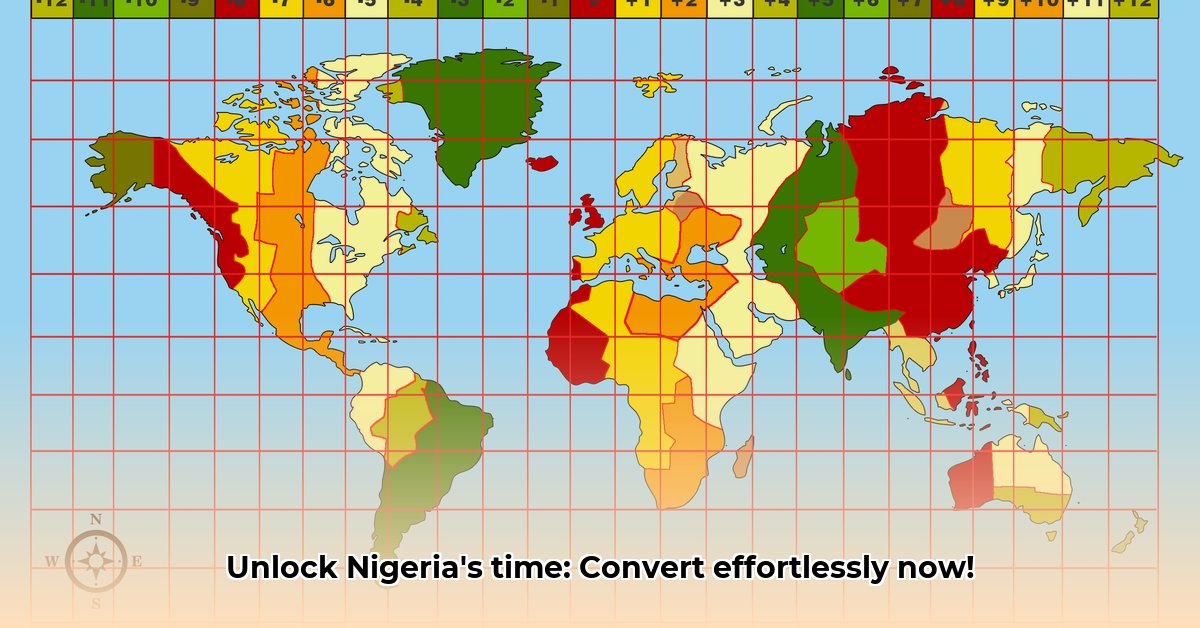
Choosing the Right Time Zone API: Accuracy is Paramount
Accurately converting times across Nigeria's diverse time zones is crucial for businesses and individuals alike. The right API (Application Programming Interface) is the cornerstone of this process. But with numerous options available, how do you choose the best one? Prioritize these key factors:
Accuracy: The API's accuracy is paramount. Aim for an API boasting a 99.9% accuracy rate or better to minimize errors, particularly crucial when handling daylight saving time (DST) changes. Inaccuracies can lead to miscommunication and scheduling conflicts. Does the API clearly state its methodology for ensuring accuracy?
Reliability: A reliable API means minimal downtime. Look for an API with a proven track record of high uptime — at least 99.8% is desirable. Frequent outages can disrupt your application and frustrate users. How does the API handle potential outages or maintenance periods?
Scalability: Consider your application's current and future needs. Will it handle a small number of requests, or will it potentially scale to millions? Choose an API capable of handling your application's current and projected load without performance degradation. A well-scaled API can prevent bottlenecks as your use grows.
Security: Data security is non-negotiable. Ensure the API uses secure protocols like OAuth 2.0 for robust authentication and authorization. How does the API handle API key management and protection of sensitive data? Are there regular security audits or penetration testing performed?
Ease of Integration: A user-friendly API simplifies implementation. Look for clear documentation, readily available code samples, and comprehensive tutorials. The smoother the integration, the less time your development team will spend on troubleshooting and implementation. Does the API offer client libraries for various programming languages?
For more on Nigeria's time zones, check out this helpful resource: Nigeria Time Zones.
Let's compare two hypothetical APIs (Alpha and Beta) to illustrate these key features:
| Feature | API Alpha | API Beta | Considerations |
|---|---|---|---|
| Accuracy | 99.9% | 99.5% | Even small inaccuracies can compound over many conversions. |
| Reliability | 99.9% uptime | 99.0% uptime | High uptime minimizes disruption to your application. |
| Scalability | 100,000 req/sec | 10,000 req/sec | Match the API's capacity to your application's expected request volume. |
| Security | OAuth 2.0 | API Key | OAuth 2.0 provides stronger security than a simple API key. |
| Ease of Integration | Excellent | Moderate | A user-friendly API speeds up development and reduces errors. |
Implementing Your Nigeria Time Zone Converter: A Practical Guide
Integrating a time zone API involves several steps, varying slightly depending on the API and your chosen programming language. Here's a general approach:
1. Obtain Your API Key: Register with your chosen API provider to receive a unique API key. Treat this key like a password; never expose it publicly.
2. Install Necessary Libraries: Install the required libraries for your programming language. In Python, you might use the requests library. JavaScript developers might use node-fetch or a similar package.
3. Make the API Call: Craft a code segment to send a request to the API. This usually involves:
* Your API key (for authentication).
* The date and time you want to convert (typically in ISO 8601 format: YYYY-MM-DDTHH:mm:ss).
* The source time zone (e.g., `UTC`).
* The target time zone (e.g., `Africa/Lagos`).
Example (Python):
import requests
api_key = “YOUR_API_KEY” # Replace with your actual key
url = f"https://api.example.com/convert?key={api_key}&time=2024-10-27T10:00:00&from=UTC&to=Africa/Lagos"
response = requests.get(url)
data = response.json()
print(data[‘converted_time’])
Remember to replace "YOUR_API_KEY" and the example URL with the specifics provided by your chosen API. Always refer to your API's documentation for precise instructions. Thorough testing is critical – using a variety of test cases will verify that the integration functions correctly under diverse scenarios.
Handling Daylight Saving Time (DST)
Most reliable APIs automatically handle DST transitions. However, it is prudent to consult your API's documentation to confirm its DST handling capability, especially for Nigeria, where DST rules can change.
Advanced Features and Best Practices
Many APIs offer more advanced features. Some provide historical time zone data, useful for analyzing past events. Others offer batch processing, optimizing conversion of large datasets. Explore these features as your needs grow.
Follow these best practices for reliable operation:
Error Handling: Implement robust error handling to gracefully manage API request failures. Never let a single failed request crash your entire application.
Data Privacy: If using geolocation data, comply with relevant privacy regulations (e.g., GDPR, CCPA).
API Monitoring: Regularly monitor your API's performance to ensure timely detection of issues. Set up alerts for significant deviations from expected performance metrics.
The Future of Nigeria Time Zone Converters
The field of time zone APIs is constantly evolving. Expect improvements in accuracy, real-time updates, and even smoother integration with other services. The future trend is towards seamless time zone management, enhancing user experience across applications. The increasing use of machine learning will likely improve the API's ability to predict future DST changes, which can be unpredictable. Moreover, the creation of more specialized, region-specific APIs might also be expected, catering specifically to the complexities of time zones within large and diverse countries like Nigeria.